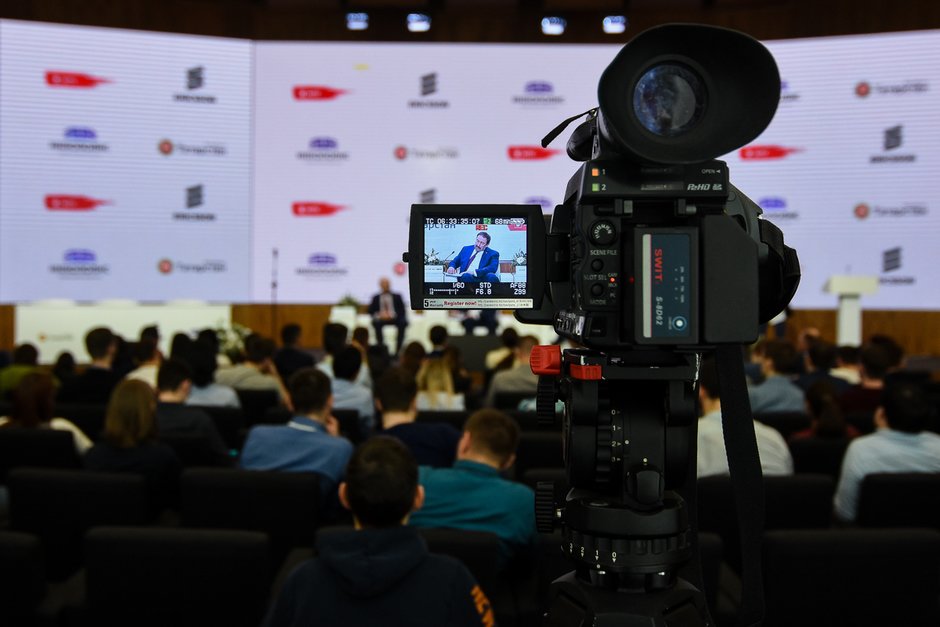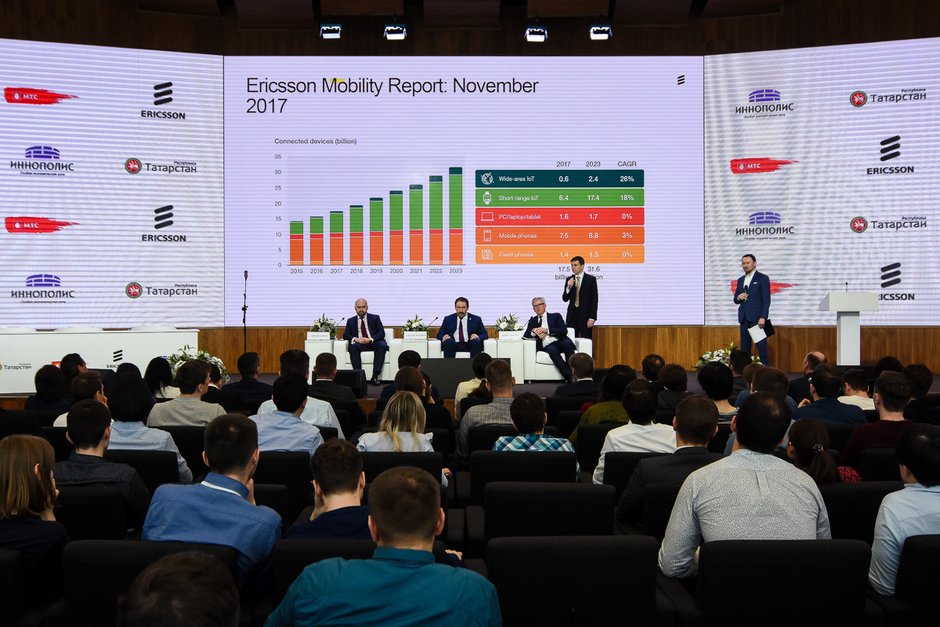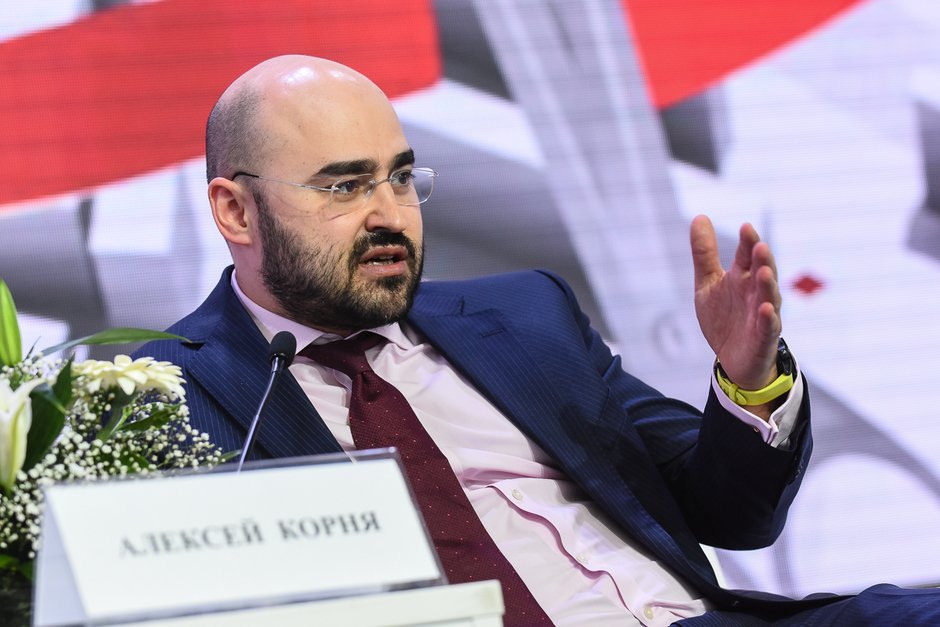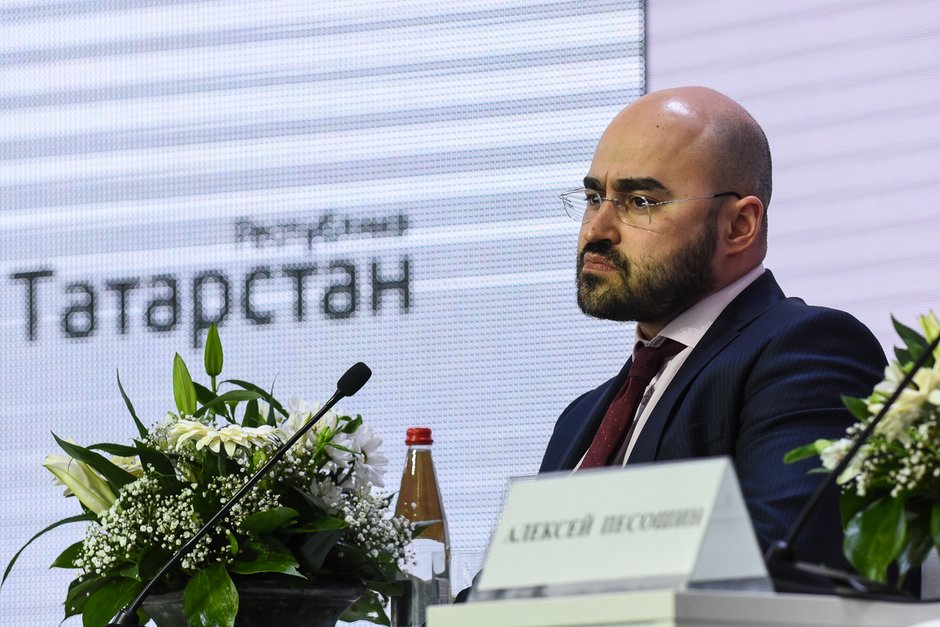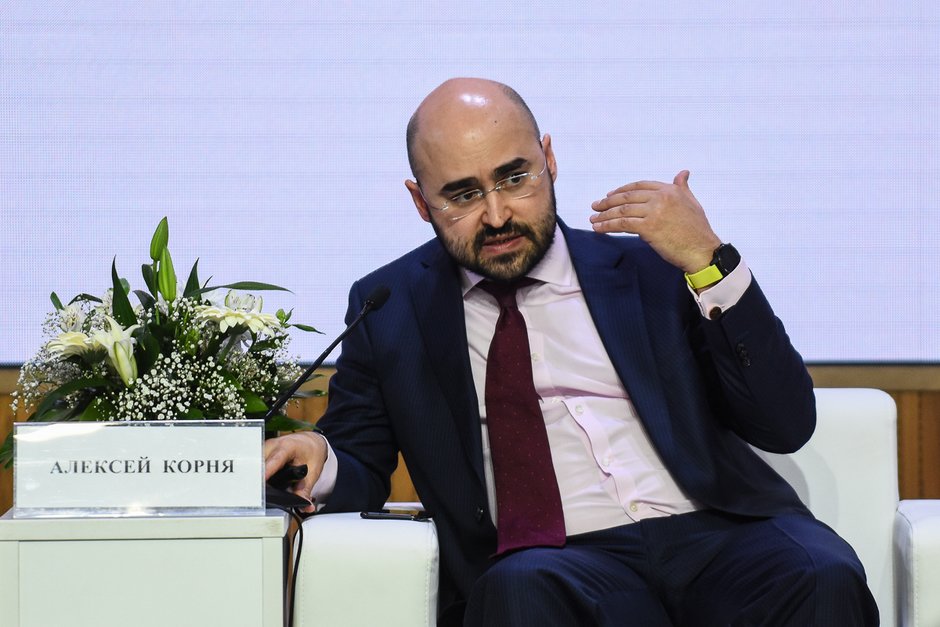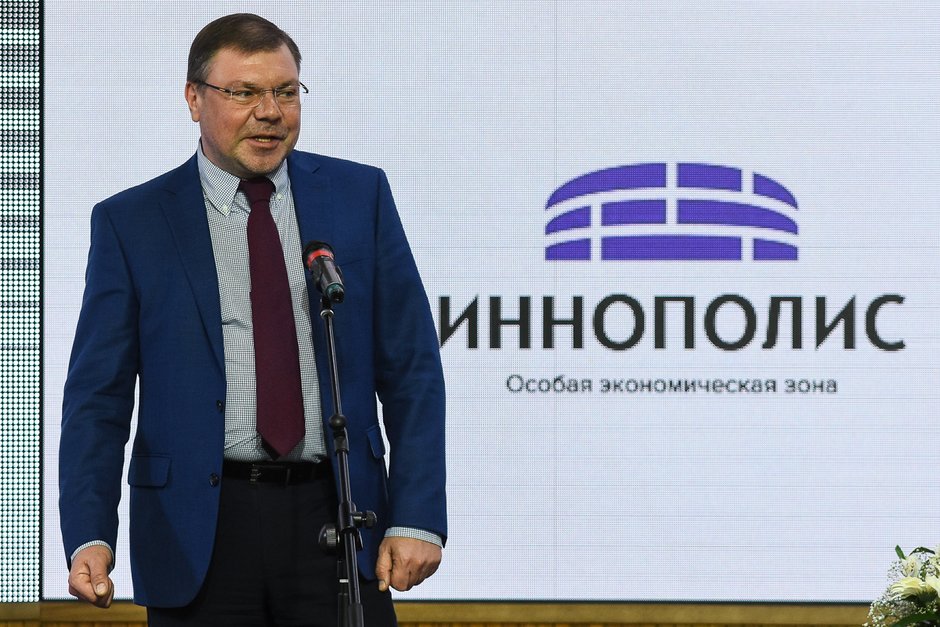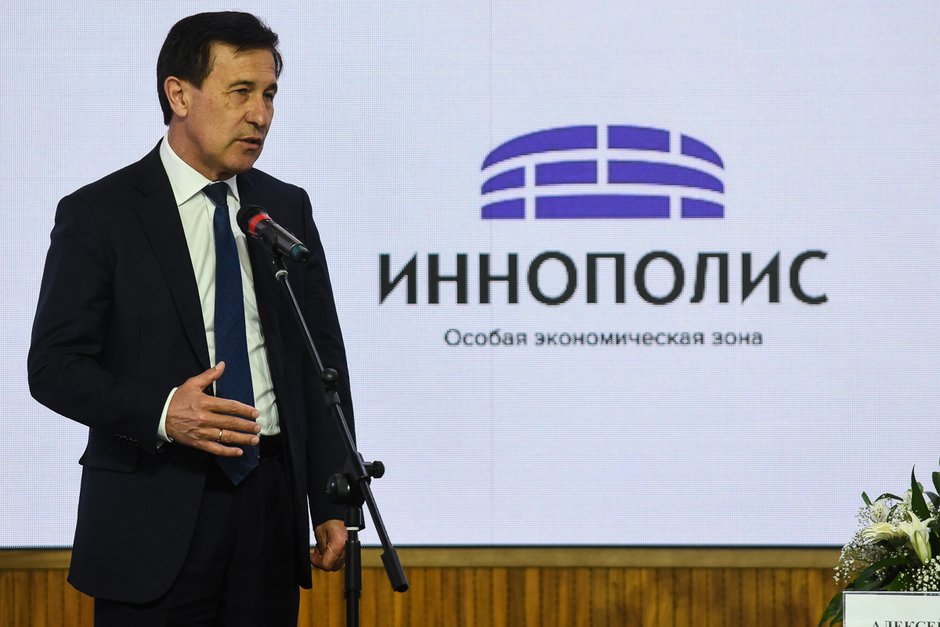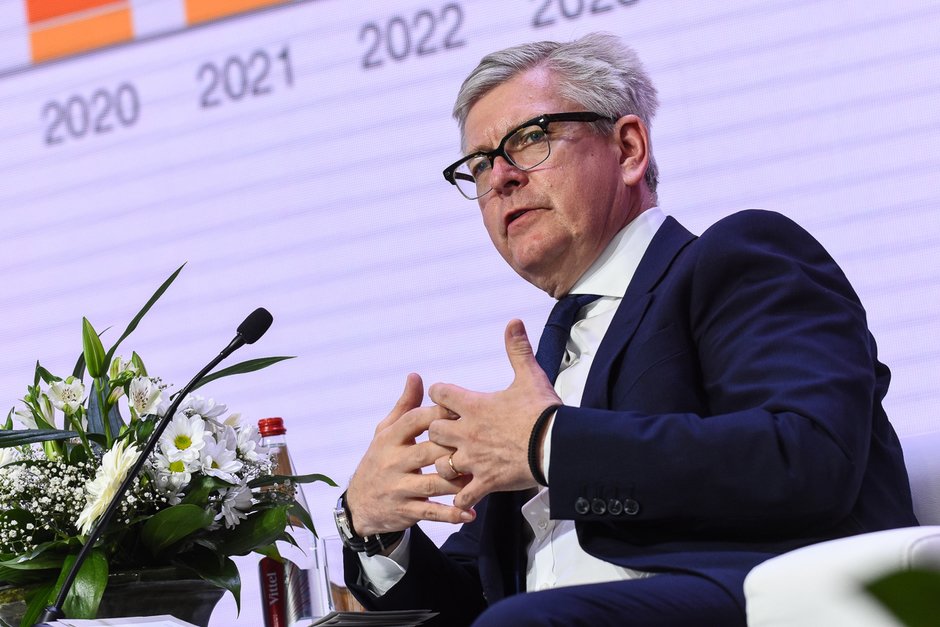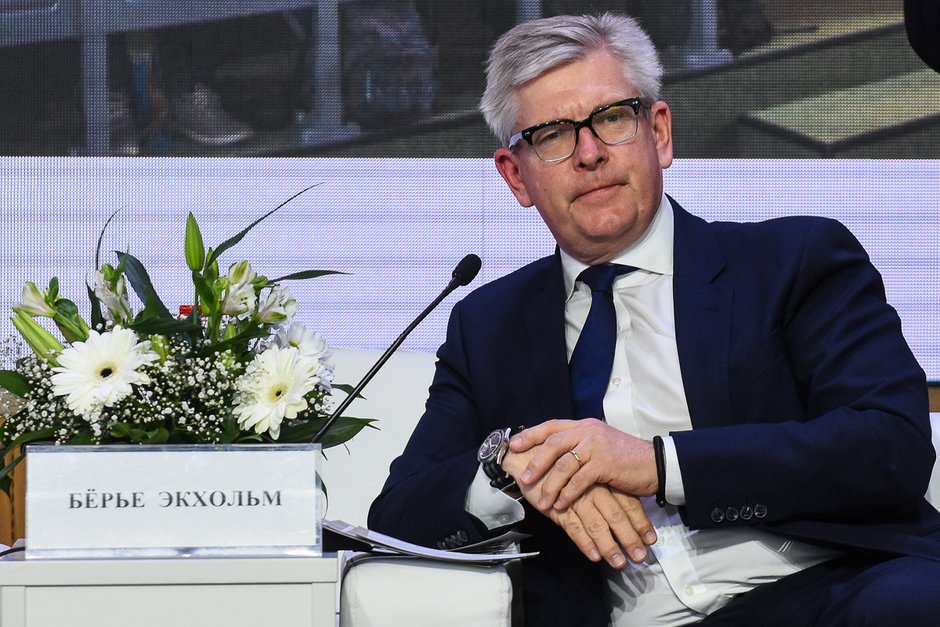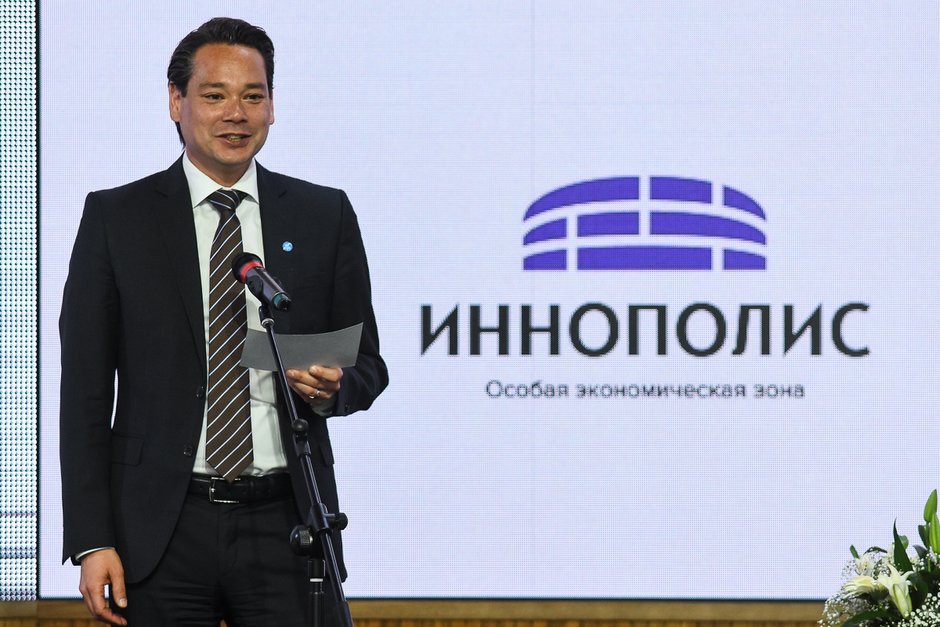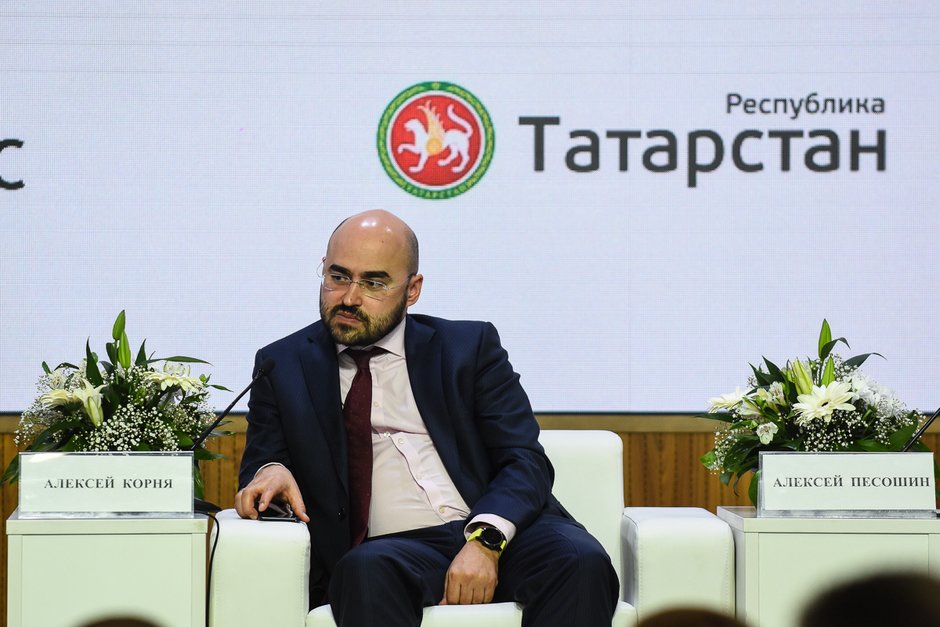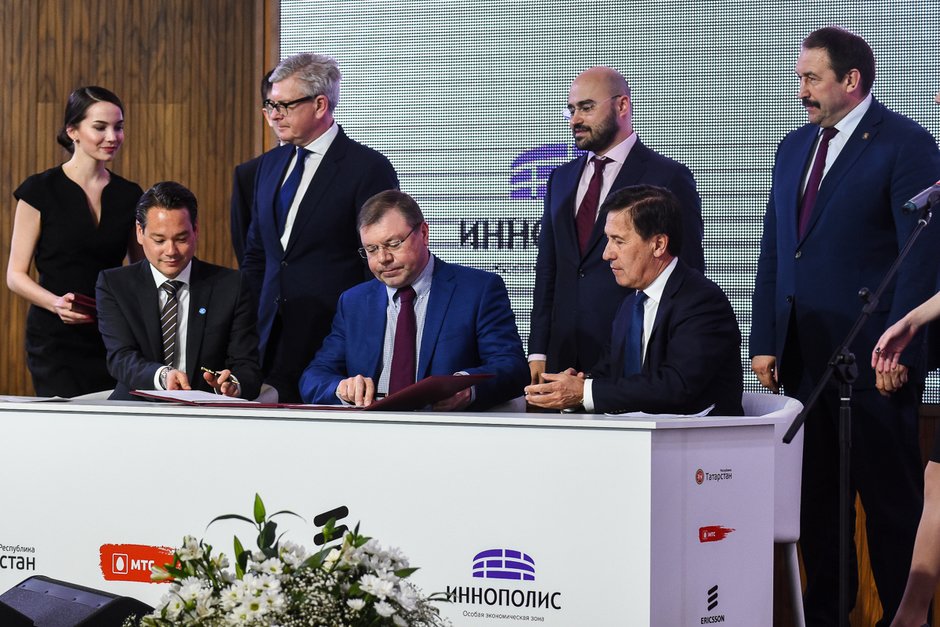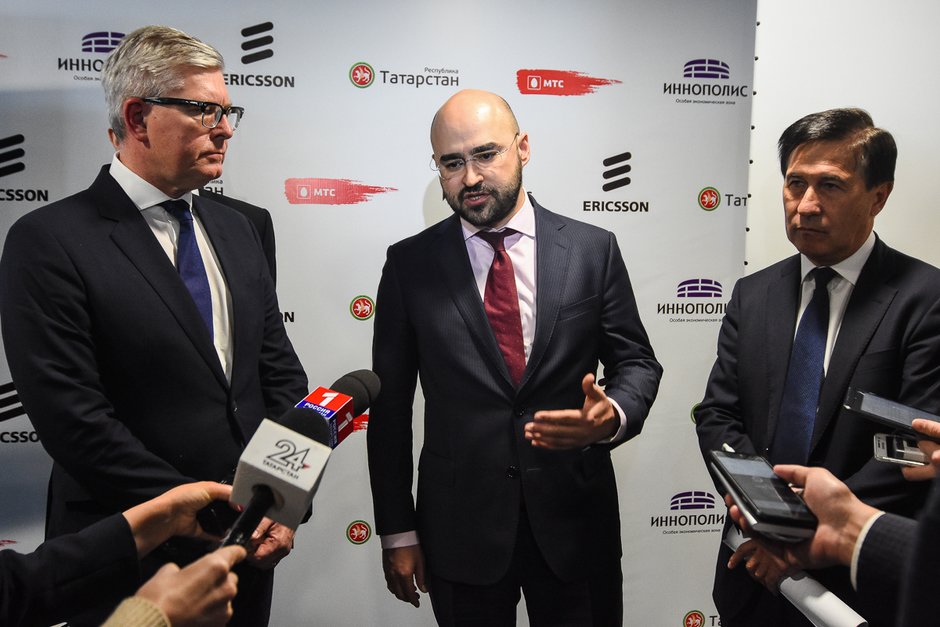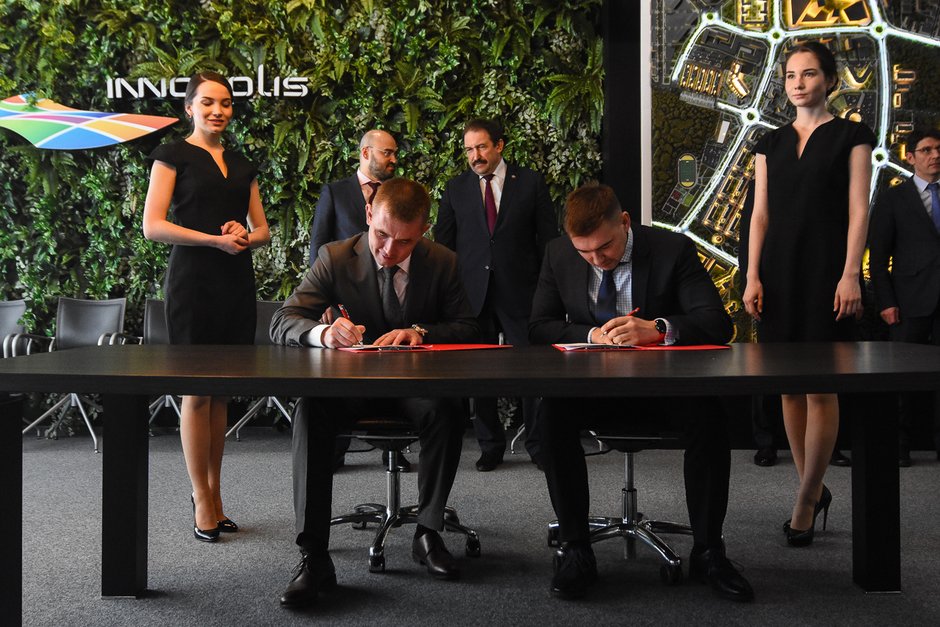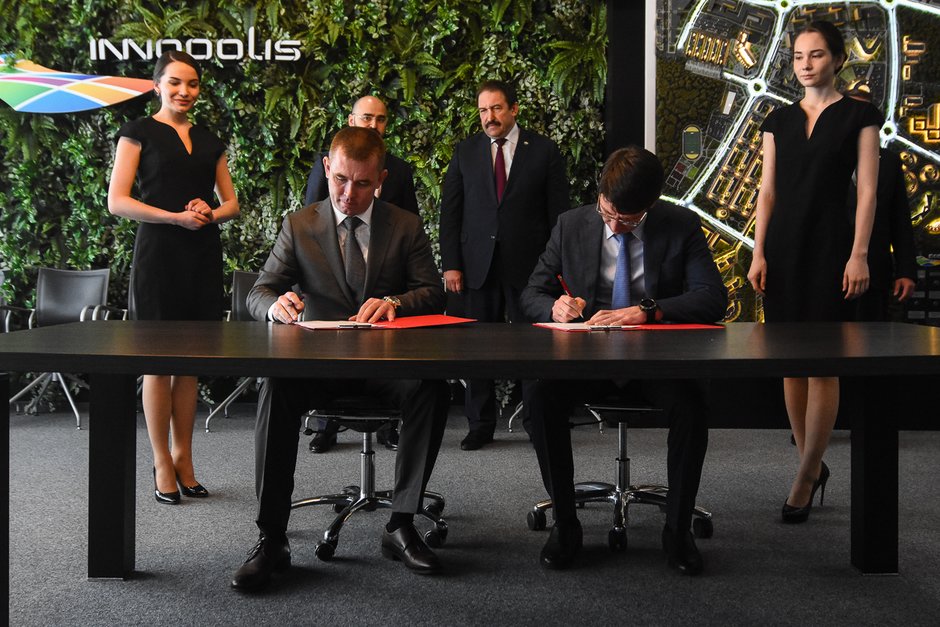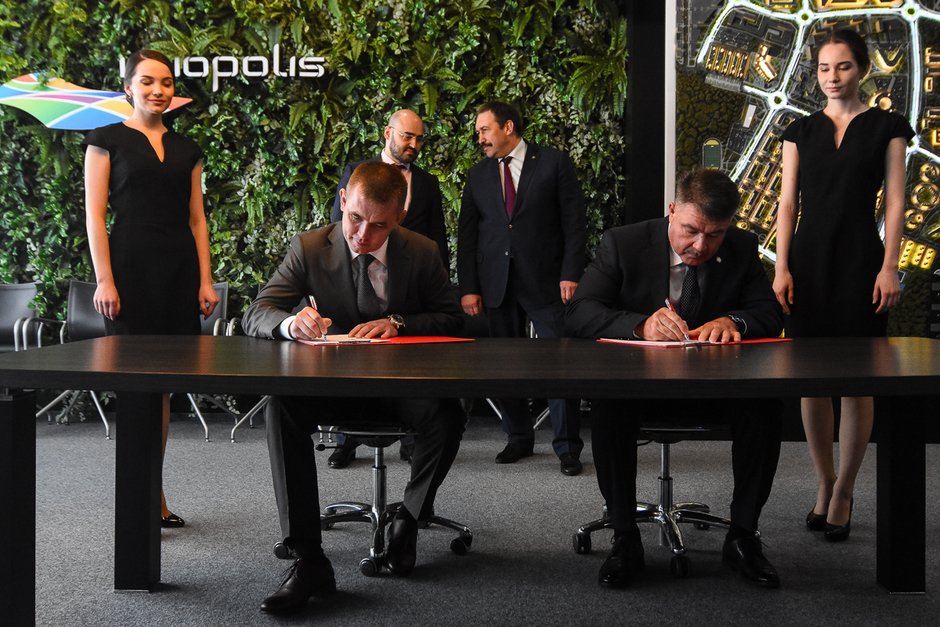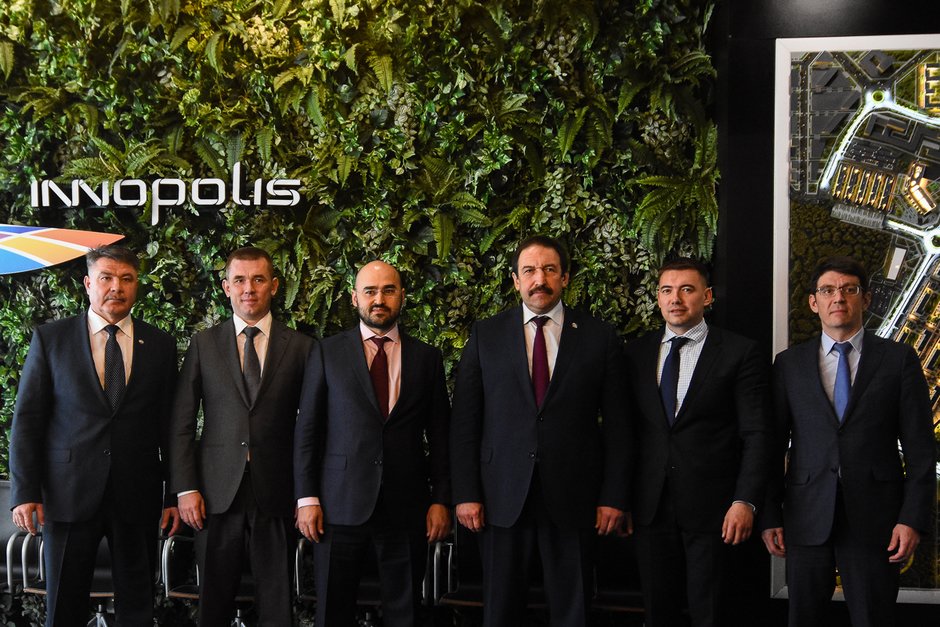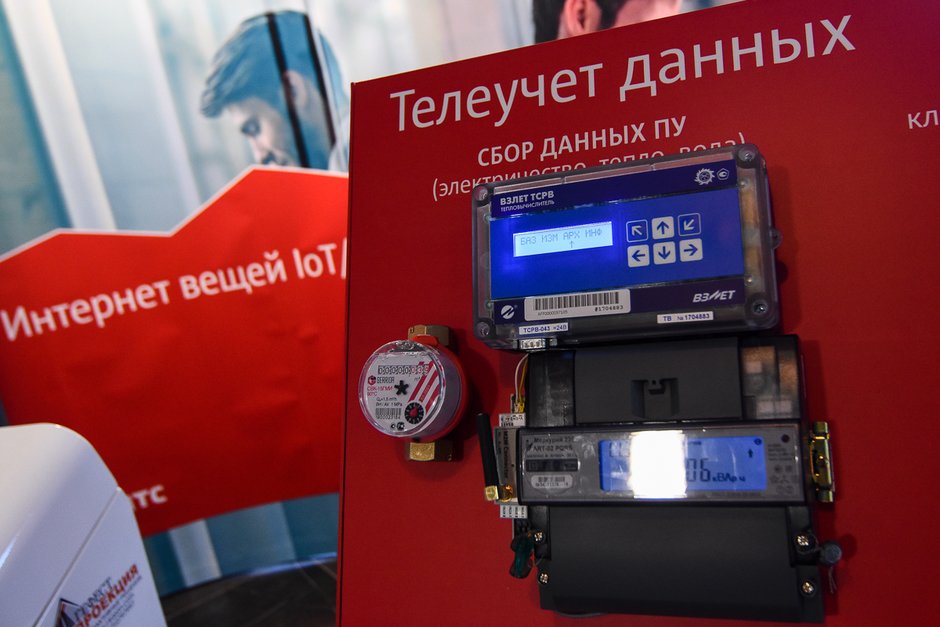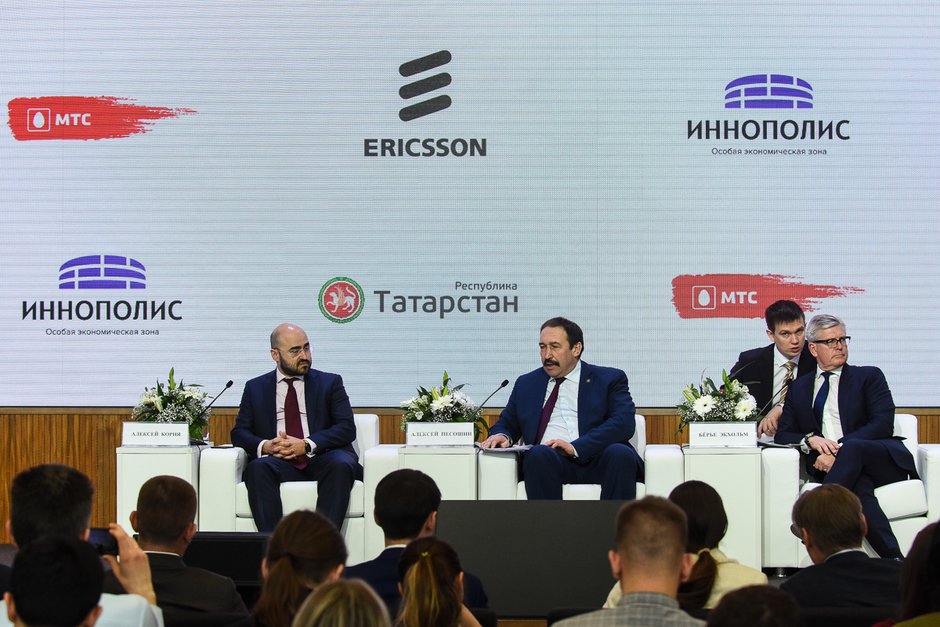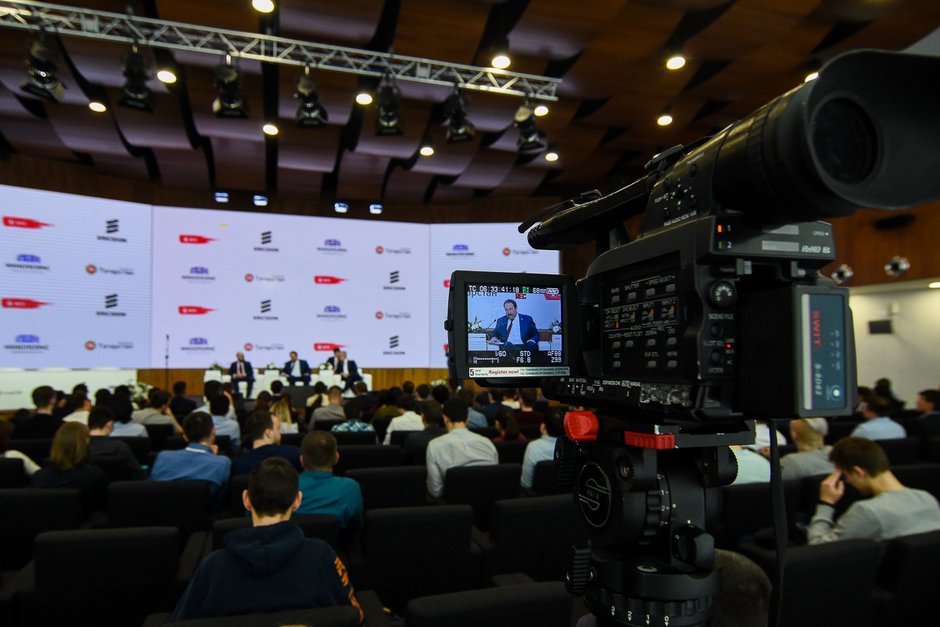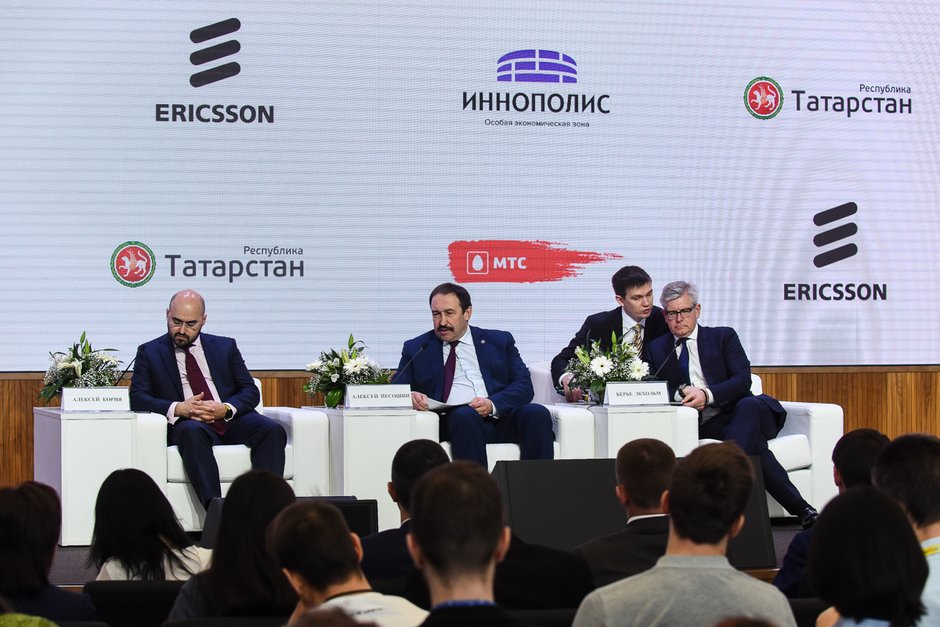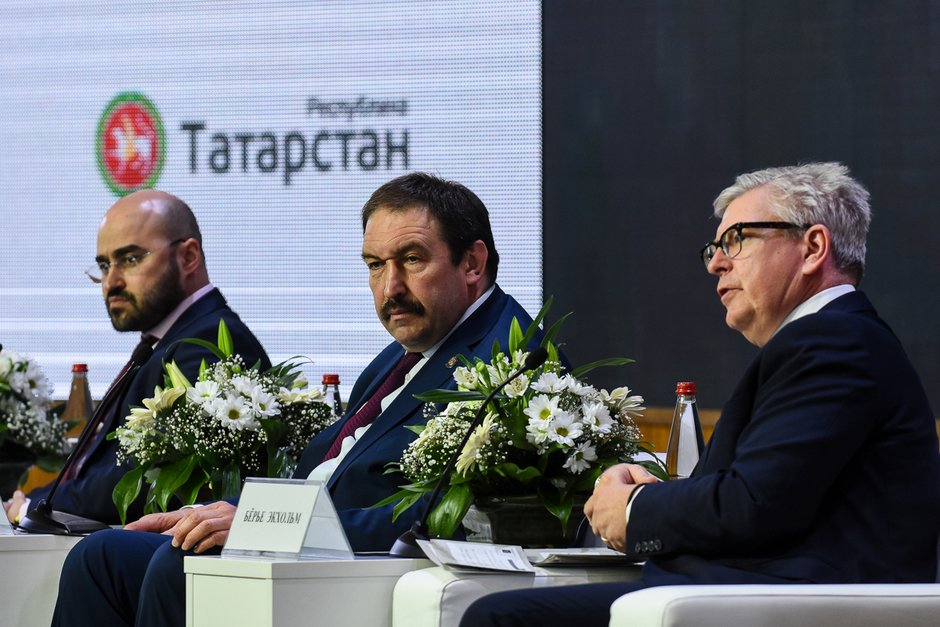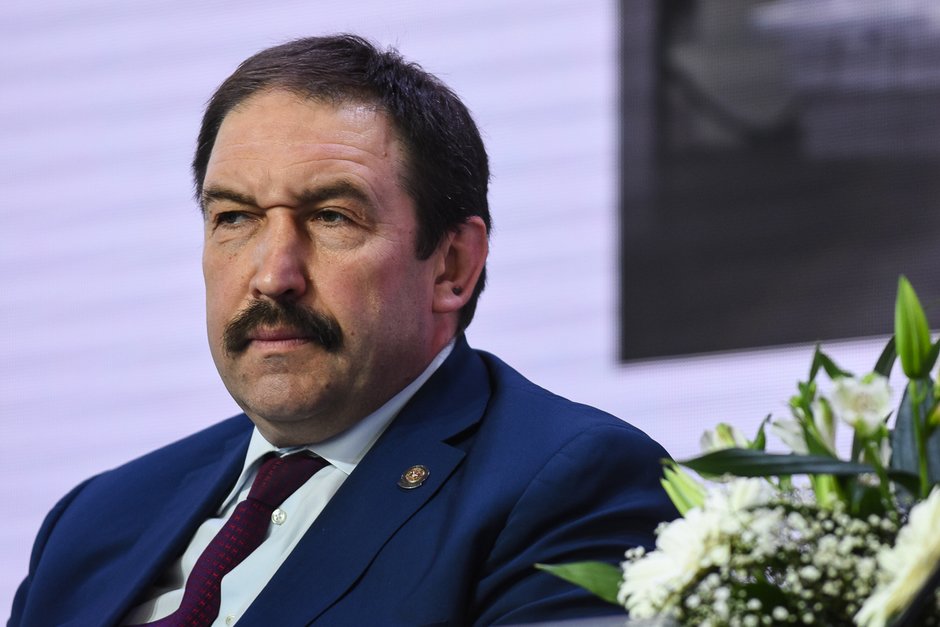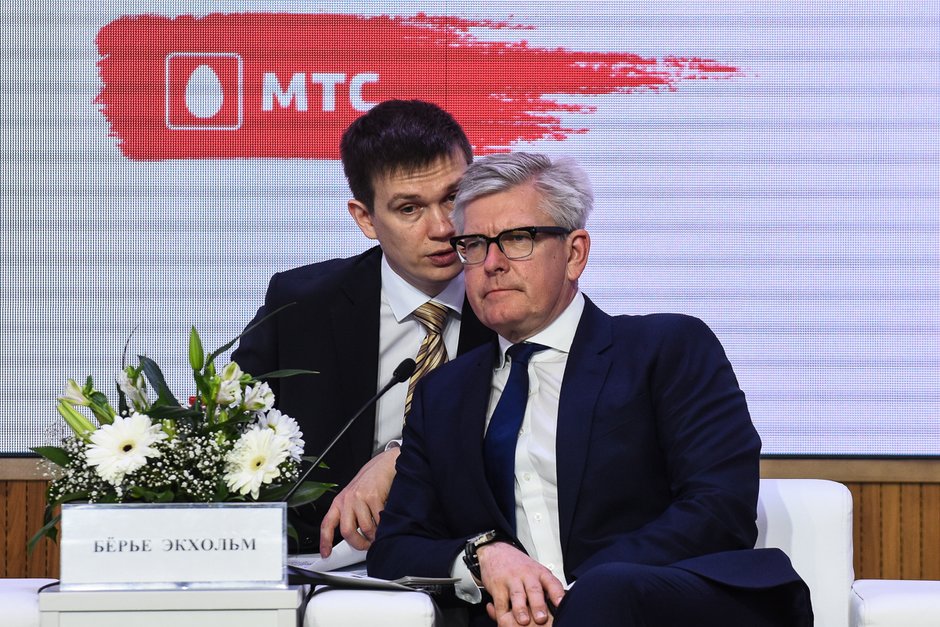How to turn Arsk into a smart city
When Internet of Things will triumph in Russia, on what roads unmanned KAMAZ vehicles will drive and how to keep up with Instagram
The Centre for research and development of MTS and Ericsson in the field of 5G and Internet of Things has been recently opened in Innopolis. At the first stage, it will work on testing in the cities of the Republic of Tatarstan of the solutions in the field of smart city. About what elements of innovative infrastructure are planned to be introduced, when the experience gained in Tatarstan will be extended to other cities of Russia, as well as about how the recently opened centre for research will help KAMAZ — read in the material of Realnoe Vremya.
''It took only six months to reach 50-million audience on Instagram''
The decision to launch the Centre for research and development in the field of 5G and Internet of Things in Innopolis follows from a trilateral agreement on cooperation between Tatarstan, MTS and Ericsson signed in February. ''We are very pleased to welcome the opening of the joint research centre of world brands MTS and Ericsson, and I would like to thank my colleagues for choosing the location in Innopolis,'' Tatarstan Prime Minister Alexey Pesoshin made a welcoming speech.
In turn, Aleksey Kornya, the president of MTS PJSC, announced that his company ''is glad to announce the launch of the project in the Innopolis''. The speaker also explained why his company considers it important to invest in digital research.
''In recent years, the dynamics of penetration, as well as coverage of new products and services are rapidly changing. For clarity, I can provide data on how long it took to reach an audience of 50 million users for different resources. If for the radio it took 38 years, television — 13 years, then for Instagram — only six months,'' said Kornya. ''Such dynamics imposes completely different requirements and a different speed of adaptation. Our participation in scientific developments in the direction of 5G and IoT, which will contribute including to the development of urban infrastructure, is a response to the challenges of the modern world.''
Aleksey Kornya: ''Our participation in scientific developments in the direction of 5G and IoT, which will contribute including to the development of urban infrastructure, is a response to the challenges of the modern world''
''The main thing — to get involved in the battle, and it will clear then''
The recently opened centre will have three main directions: IoT, Big Data and 5G. The Internet of Things involves working with all solutions related to sensors, the possibility of more efficient use of urban resources, as well as industrial automation (in the latter direction, MTS plans to organize close work with KAMAZ, read more details about this below).
The category of Big Data involves the information that is impossible to process using traditional methods. The centre opened in Innopolis will become one of the stages of the expansion of competences of MTS in this direction. In turn, 5G is what future technologies will work on. The fifth-generation network provides higher speeds and extremely low ping: for example, the test area, which Ericsson previously implemented together with MTS, has already shown a speed of more than 20 GB.
It should be noted that at the first stage the centre will focus on the development of smart city solutions for the infrastructure of settlements of the Republic of Tatarstan — a relevant partnership agreement between the companies and administrations of Innopolis, as well as Arsky and Almetyevsk districts, has recently been signed. Pilot zones of networks NB IoT will be launched in Almetyevsk, Arsk and Innopolis to test projects in the field of smart city.
''One of the key technologies to develop smart cities is NB IoT – this technology is characterized by low energy consumption, higher level of security and economical use of frequency resource. This will make it possible to equip almost every element of urban infrastructure with technological solutions,'' explained Aleksey Kornya.
The correspondent of Realnoe Vremya also asked the speaker to tell about the elements of high-tech infrastructure would be implemented in Tatarstan cities. ''You know, this is quite a large range, starting from the coordination of sensors that can control electricity for housing and communal structures and ending with technologies related to parking and so on,'' Kornya listed.
It should be noted that the developments in the field of smart cities received in Tatarstan in the future are planned to apply in other cities of the Russian Federation, but experts find it difficult to call an approximate time to enter the national level. ''It is very difficult to predict. The main thing is to get involved in the battle, and then it will be clear,'' the president of MTS PJSC commented.
''We hope the legislation on unmanned vehicles for closed territories will be developed already next year''
We have already mentioned the telecommunications company's intention to cooperate with KAMAZ in terms of production automation — for this purpose another agreement has been signed.
''The agreement opens the opportunities for cooperation in three areas. First, the use of telecom operator's networks in telematics – it is the equipment for monitoring the equipment, which by the end of the year will be installed on each KAMAZ vehicle. The second direction is the use of 5G networks in autonomous control systems for unmanned vehicles. The third direction is the use of MTS's technological solutions in the field of IoT for automation of production processes,'' said deputy director for innovative products of KAMAZ Firdaus Kabirov.
Let us note that despite the active work of a number of Russian companies on unmanned vehicles, in Russia to date there is no infrastructure for their active use or corresponding legislation. At the request of Realnoe Vremya, Firdaus Kabirov commented on the situation.
''About public roads it is too early to speak for now. But we can use the closed territories — on perimeter of the plant, in park zones, for career transportations, in Emercom and so on,'' the speaker said.
But what if an unmanned vehicle hits a person in the ''closed territory'' of the plant? Who will be responsible?
''Again, we are planning to test unmanned vehicles in closed areas, not on public roads, but in these areas the law of the Russian Federation also applies. In this regard, of course, the adoption of legislation is required. The working group Avtonet is engaged in this issue. The first thing they will start with is the legislation for closed territories. We hope that the legislation for closed territories will be developed already next year,'' the speaker summarized.
